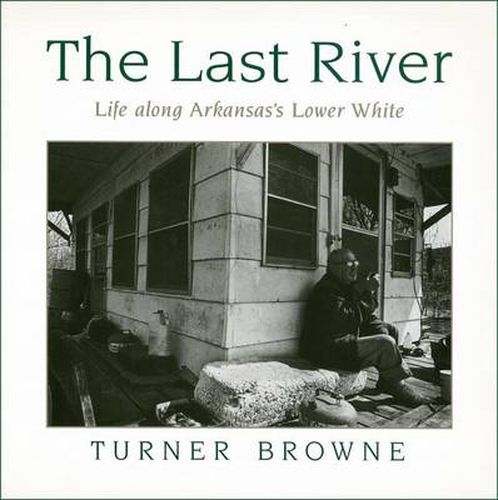Readings Newsletter
Become a Readings Member to make your shopping experience even easier.
Sign in or sign up for free!
You’re not far away from qualifying for FREE standard shipping within Australia
You’ve qualified for FREE standard shipping within Australia
The cart is loading…






With 68 compellingly beautiful photographs, Turner Browne documents a fast-disappearing way of life for the people who live on the lower White River and issues a plea to save the river from irreversible damage by the Army Corps of Engineers. By demonstrating that the endless dredging and flood control projects of the ever-active Corps are destroying the river’s natural beauty and the livelihoods of those who make the river their only home - on houseboats and along its banks - he argues graphically and heroically for the preservation of a unique culture and of a great river. The black-and-white photographs, taken between Batesville, Arkansas, and the confluence with the Mississippi River, tell a story of loss, nostalgia, and fortitude as they portray the river’s remarkable character and the exceptional lifestyles of acorn gatherers, sturgeon fishers, mussel divers, and others who extract a meager but satisfying existence from the river’s resources. The damage the Corps of Engineers has wrought, including cleared forests, piles of debris, and containment structures, certainly tolls a death knell for much of this natural waterway. The Last River is a journey, a journey probably never to be taken again.
$9.00 standard shipping within Australia
FREE standard shipping within Australia for orders over $100.00
Express & International shipping calculated at checkout
With 68 compellingly beautiful photographs, Turner Browne documents a fast-disappearing way of life for the people who live on the lower White River and issues a plea to save the river from irreversible damage by the Army Corps of Engineers. By demonstrating that the endless dredging and flood control projects of the ever-active Corps are destroying the river’s natural beauty and the livelihoods of those who make the river their only home - on houseboats and along its banks - he argues graphically and heroically for the preservation of a unique culture and of a great river. The black-and-white photographs, taken between Batesville, Arkansas, and the confluence with the Mississippi River, tell a story of loss, nostalgia, and fortitude as they portray the river’s remarkable character and the exceptional lifestyles of acorn gatherers, sturgeon fishers, mussel divers, and others who extract a meager but satisfying existence from the river’s resources. The damage the Corps of Engineers has wrought, including cleared forests, piles of debris, and containment structures, certainly tolls a death knell for much of this natural waterway. The Last River is a journey, a journey probably never to be taken again.